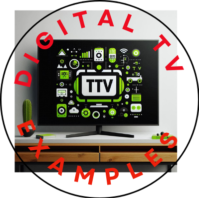 Smart TVs are practically the next step in the evolution of television and are everywhere today. Think of a smart TV as a TV that’s gotten a lot smarter. It connects to the internet, meaning you can stream your favorite shows and access tons of apps, just like your smartphone or tablet.
Smart TVs are practically the next step in the evolution of television and are everywhere today. Think of a smart TV as a TV that’s gotten a lot smarter. It connects to the internet, meaning you can stream your favorite shows and access tons of apps, just like your smartphone or tablet.
One of the big advantages of having a smart TV is convenience. You don’t need extra cables or a separate streaming device to browse Netflix or watch the latest show on Hulu. Everything is integrated, giving your living room a clean, wire-free environment.
The technology inside these televisions is evolving rapidly. There’s now voice control, integration with smart home devices, and even AI-powered image adjustment features. These things make interacting with your TV more fluid and intuitive.
Companies like LG, Samsung, Sony, and TCL are really making a splash in the market. Each brings something different, like LG’s improved OLED display or Samsung’s QLED technology, each adapting to different user needs with their different types of functions.
When choosing a smart TV, the important thing is to find the TV that best suits your viewing habits. There are many options available and all of them have something interesting to offer.
Leading Brands: LG vs. Samsung
 Choosing between LG and Samsung is like being at a crossroads of technological genius. Both are giants in the smart TV game, both have their own loyal followings, and both have won major awards.
Choosing between LG and Samsung is like being at a crossroads of technological genius. Both are giants in the smart TV game, both have their own loyal followings, and both have won major awards.
LG has been a major player thanks to its OLED technology, known for delivering excellent pictures with true blacks and bright colors. It’s like having a mini movie theater at home, turning everyday viewing into an experience.
Meanwhile, Samsung comes with its own QLED technology, which can’t compete with OLED in producing deep blacks but makes up for it with brighter images. This could be a game-changer for brightly lit rooms. When it comes to usability, LG runs its own webOS – a sleek and intuitive platform that’s easy to navigate even for tech novices.
While Samsung’s Tizen OS offers a fluid user interface with a clean design that’s equally appealing. Honestly, it’s like choosing between fudge and candy. Sound quality is another battleground.
Samsung typically packs in great sound innovations, while LG complements its visual prowess with commendable audio performance. Either way, you’re in for a treat. Performance-wise, both LG and Samsung consistently earn rave reviews from users and experts alike. Whichever way you lean, there’s little chance you’ll be left dissatisfied. It’s more about what appeals to you visually and functionally, not whether one brand is better than another.
Reliability and Longevity in Smart TVs
Choosing a smart TV isn’t just about the glitz and glamour of features; reliability is also very important. Nobody wants their TV to break down right before the season is over, right?
When evaluating reliability, longevity is key. This includes checking how often brands release software updates and how their TVs perform over the long haul. Hardware reliability, customer service, and warranty options are also important. A solid warranty can be your safety net when unforeseen issues arise.
Those in the know often consider Sony and Panasonic to be the gold standard when it comes to reliability. They are praised for their consistent performance and strength over the years. Still, brands like LG and Samsung continue to attract loyal crowds, largely due to improvements in durability and responsive customer service.
These days, consumer reviews are just a click away. Buyer reviews and forums can provide insight into real-world performance and reliability issues. So, it’s worth spending some time researching them before making a decision. Remember, a little research now can save a lot of trouble in the future.
Navigating Smart TV Platforms: Roku vs. Google TV
When it comes to smart TV platforms, Roku and Google TV are leading the trend with their unique offerings to make digital content accessible from your living room. Both are giants, but which one is better? It depends on what your tech tastes prefer.
Roku offers a simple and straightforward approach that’s hard to beat. It has the largest selection of streaming channels and an intuitive user interface that feels natural, even if technology isn’t your best friend. It’s like changing channels in the old days, only with so many other options at your fingertips.
Google TV, on the other hand, offers a more integrated experience powered by great search and recommendation intelligence. It brings together content from multiple apps into a personalized feed, which can save time finding what to watch next. Imagine a platform that seamlessly combines TV shows, movies, and online videos according to your preferences.
In terms of content availability, both platforms offer a wide range of options, including most major streaming services. However, if you prefer a wider variety of apps and specific channels, Roku may have a slight advantage.
Ultimately, choosing between Roku and Google TV depends on what best suits your lifestyle. Some people like Roku’s simplicity and spaciousness; others rely on Google TV’s brilliant data-driven interface. Either way, as soon as you press “on,” you have access to a whole world of entertainment.

